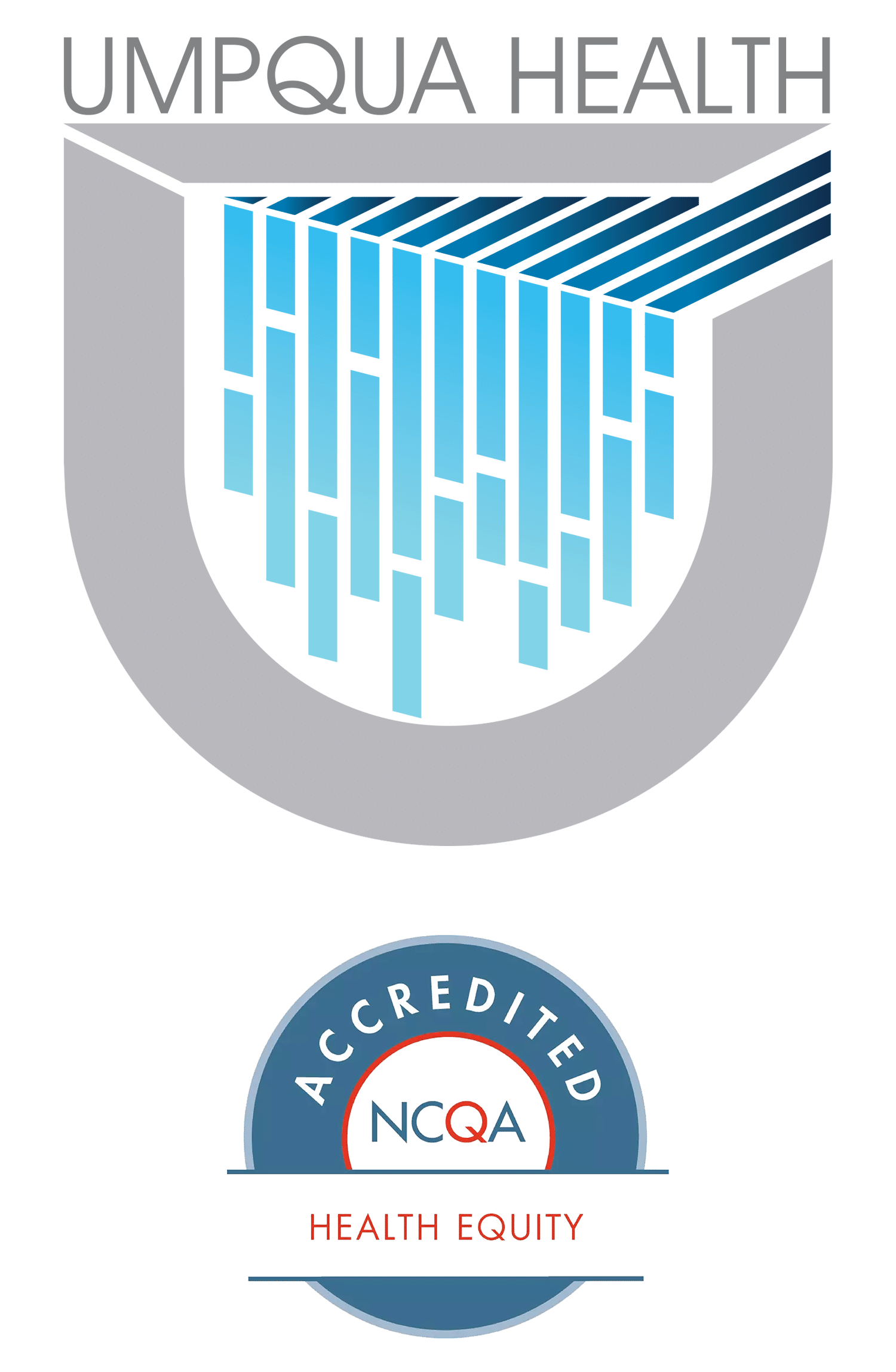Provider Newsletter – August 2021

Practice Tactics
COVID Vaccination Incentive Funding by UHA
Umpqua Health Alliance (UHA) is partnering with Primary Care Physicians in our community to offer an incentive program for UHA members who have not received the COVID -19 vaccination shot. The PCP Vaccination Incentive Assistance Program is only available for eligible UHA members who have not received their first dose of the covid19 vaccination. The goal of the program is to provide financial assistance to UHA participating primary care providers (PCPs) to achieve higher vaccination rates among eligible UHA members.
For more information on how to apply for this funding, contact Carlos Gomez, Director of Provider Relations at cgomez@umpquahealth.com
Reminder for Medicare & Atrio Primary Payer claims
UHA receives Medicare COBA and Atrio secondary claims (crossover claims) directly from these primary payers. This elevates the need for a direct submission from the provider’s office. If you have any questions, please reach out to our Customer Care team at 541-229-4842, or email us at uhaclaims@umpquahealth.com
Douglas County System of Care has an exciting opportunity to apply for support and success funding!
What is the System of Care Support and Success Funding?
This funding is intended to target programs supporting youth and families to achieve goals, celebrate success, and maintain progress. This funding is intended to be supplemental to existing program funding rather than the primary funding source.
Who can apply?
An existing program, project, provider, organization, company or initiative serving Douglas County youth and families. The focus is on programs that can use more resources to continue or expand successful initiatives. The hope is that this funding will assist in shifting to a strengths-based perspective of working with youth and families by supporting success, development, and growth.
How do I apply for funding?
Direct Link: https://www.umpquahealth.com/behavioral-health/#bhcm-forms – the Success Funding documents, including a cover page with questions/answers, are included in the last selection in the form list.
Other way to access: https://www.umpquahealth.com/providers/ – Providers > Patient Services > Behavioral Health > Support and Success Funding Application | W9
Recruiting for Workgroup
Lastly, we are recruiting for a workgroup to assist with reviewing and making determinations about requests! The work group will meet 2x per quarter, and the first two dates will be August 18 and August 25 at 3:00 pm.
If you have additional questions about the funding requests OR being a part of the workgroup, please email DouglasSOC@umpquahealth.com or bharrison@umpquahealth.com
Please pass on this information to any relevant community partner or provider who may be interested in applying!

Clinical Corner
Appropriate Use of Short-Course Antibiotics in Common Infections: Best Practice Advice from the American College of Physicians
Rachael A. Lee, MD, MSPH, et.al. for the Scientific Medical Policy Committee of the American College of Physicians*
Description: Antimicrobial overuse is a major health care issue that contributes to antibiotic resistance. Such overuse includes unnecessarily long durations of antibiotic therapy inpatients with common bacterial infections, such as acute bronchitis with chronic obstructive pulmonary disease (COPD) exacerbation, community-acquired pneumonia (CAP), urinary tract infections (UTIs), and cellulitis. This article describes best practices for prescribing appropriate and short-duration antibiotic therapy for patients presenting with these infections.
Best Practice Advice 1: Clinicians should limit antibiotic treatment duration to 5 days when managing patients with COPD exacerbations and acute uncomplicated bronchitis who have clinical signs of a bacterial infection (presence of increased sputum purulence in addition to increased dyspnea, and/or increased sputum volume).
Best Practice Advice 2: Clinicians should prescribe antibiotics for community-acquired pneumonia for a minimum of 5 days. Extension of therapy after 5 days of antibiotics should be guided by validated measures of clinical stability, which include resolution of vital sign abnormalities, ability to eat, and normal mentation.
Best Practice Advice 3: In women with uncomplicated bacterial cystitis, clinicians should prescribe short-course antibiotics with either nitrofurantoin for 5 days, trimethoprim–sulfamethoxazole (TMP–SMZ) for 3 days, or fosfomycin as a single dose. In men and women with uncomplicated pyelonephritis, clinicians should prescribe short-course therapy either with fluoroquinolones (5 to 7 days) or TMP–SMZ (14 days) based on antibiotic susceptibility.
Best Practice Advice 4: In patients with nonpurulent cellulitis, clinicians should use a 5- to 6-day course of antibiotics active against streptococci, particularly for patients able to self-monitor and who have close follow-up with primary care.
Ann Intern Med. 2021;174:822–827. doi:10.7326/M20-7355
 On the Lookout
On the Lookout
For the latest information on COVID vaccination in Douglas County, visit Douglas Public Health Network: http://douglaspublichealthnetwork.org/
Umpqua Health Alliance (UHA) is partnering with Douglas Public Health Network (DPHN) to offer an incentive program for Douglas County residents who have not received the COVID -19 vaccination shot. The DHPN Community Incentive Program is open to any eligible member of our community who have not received their first dose of the COVID -19 vaccination shot.

For Better Care and Health
To eliminate health inequities, issues related to Social Determinant of Health (SDOH) must be addressed; we know that these issues extend beyond the scope of the [traditional] health care system; to ameliorate this a culturally responsive workforce is essential. As a first step OHA, in 2011, established the Regional Health Equity Coalitions (RHECs) initiative to support local, community-driven, culturally specific activities to reduce health inequities and address SDOH in Oregon; the work of the coalitions focused on underserved communities, including people of color, immigrants, refugees, migrant and seasonal farmworkers, low-income populations, individuals with disabilities, and LGBTQ communities in rural and urban areas. Going forward local communities will play an important role in identifying areas of needs e.g. Communities with a behavioral health workforce need may choose to focus on expanding behavioral health providers, such as psychiatrists and psychologists, who reflect the community’s diversity. Increasing the availability and utilization of Peer Wellness Specialists is another possible approach to address a community’s behavior health needs in a culturally supportive way.
The OHA Health Care Workforce Needs Assessment found that the distribution of licensed behavioral health providers varies widely across the state, with fewer providers per capita in rural areas, and that people of color are underrepresented among nearly all segments of the behavioral health workforce: https://www.oregon.gov/oha/HPA/HP-HCW/Documents/2021-Health-Care-Workforce-Needs-Assessment.pdf

CME for Thee
Smiles For Life produces online educational resources to ensure the integration of oral health and primary care for physicians and all levels of training: https://www.smilesforlifeoralhealth.org/
Community Health Worker training presented by Oregon Community Health Workers Association (ORCHWA). This flyer provides details about the program. Please visit the link https://docs.google.com/forms/d/e/1FAIpQLSeAw8sj4gz84PNeRta-Yzh72eh5-Nt1I316FEg_LA30qXFKtg/viewform embedded in the flyer to apply for this training opportunity.
- Capacity is limited so please apply by August 23rd, 2021at 5:00pm.
Douglas County System of Care is partnering with the International Association of Eating Disorder Professionals to certify 7 local professionals in Douglas County in the treatment of Disordered Eating.
This certification is in addition to the community based training sent earlier this week which is open to all community partners. The certification process will require a completed application process (see attachment) which can also be located on our website.
https://www.umpquahealth.com/behavioral-health/#bhcm-forms
This opportunity is available to therapist, nurses, NP, RD, RDN, and psychologist to become certified in disordered eating via IAEDP.



